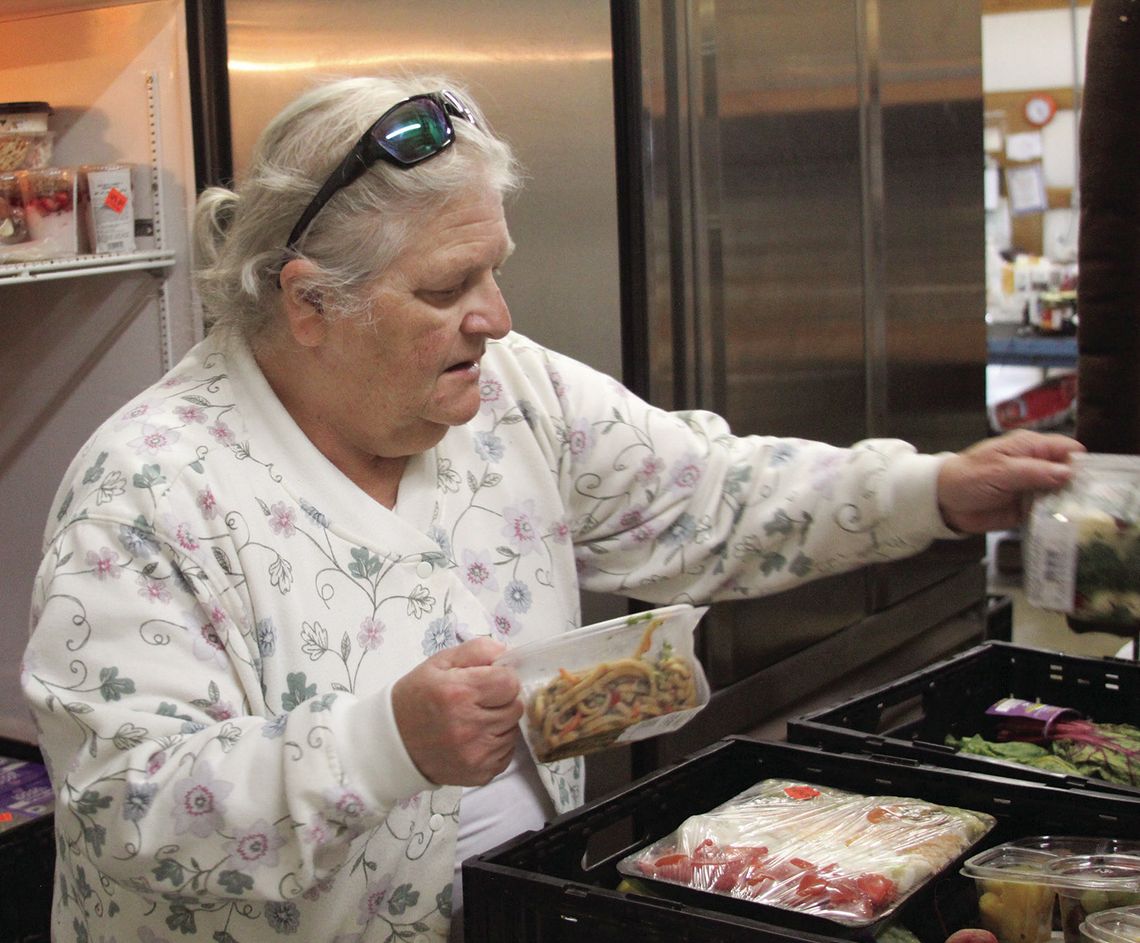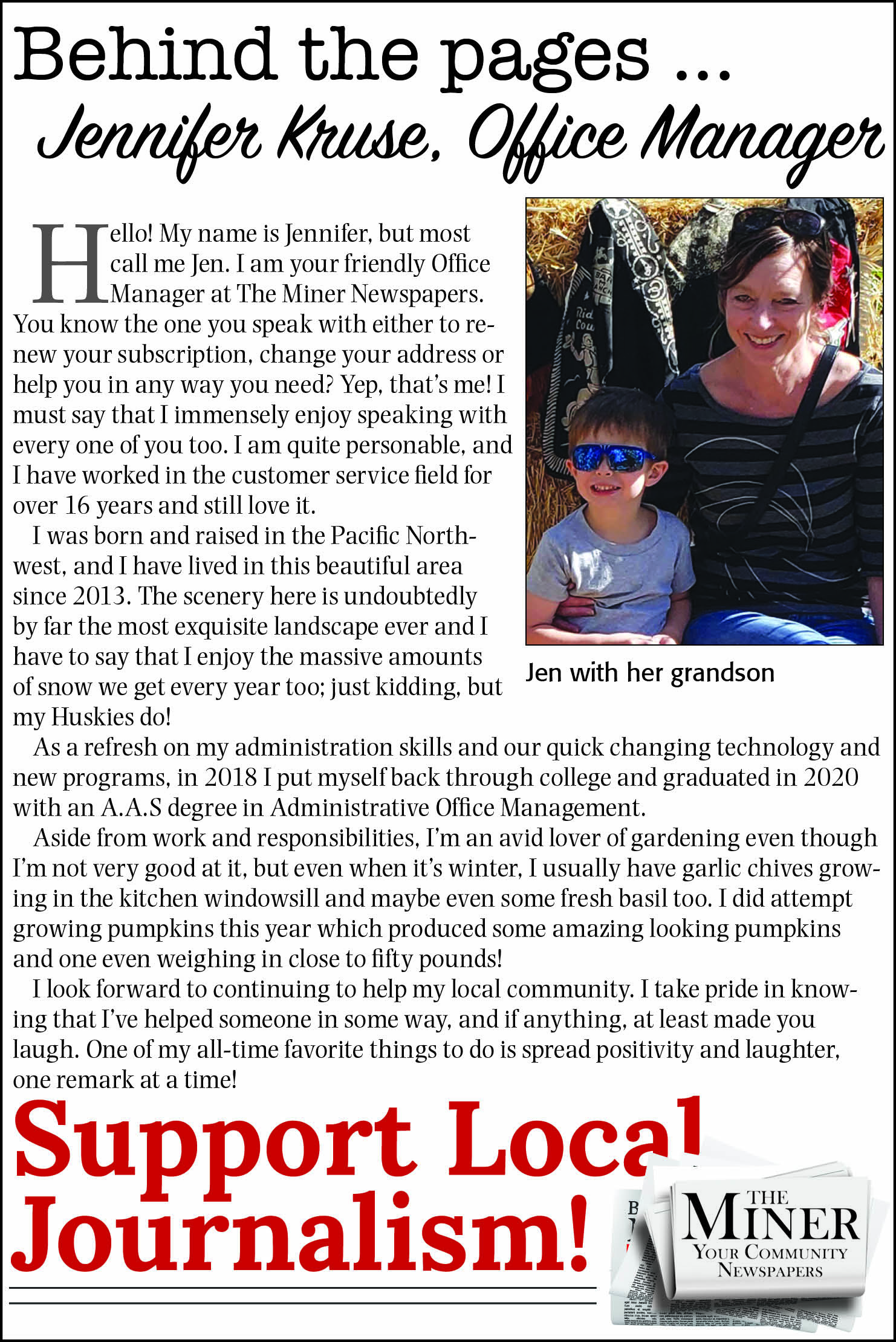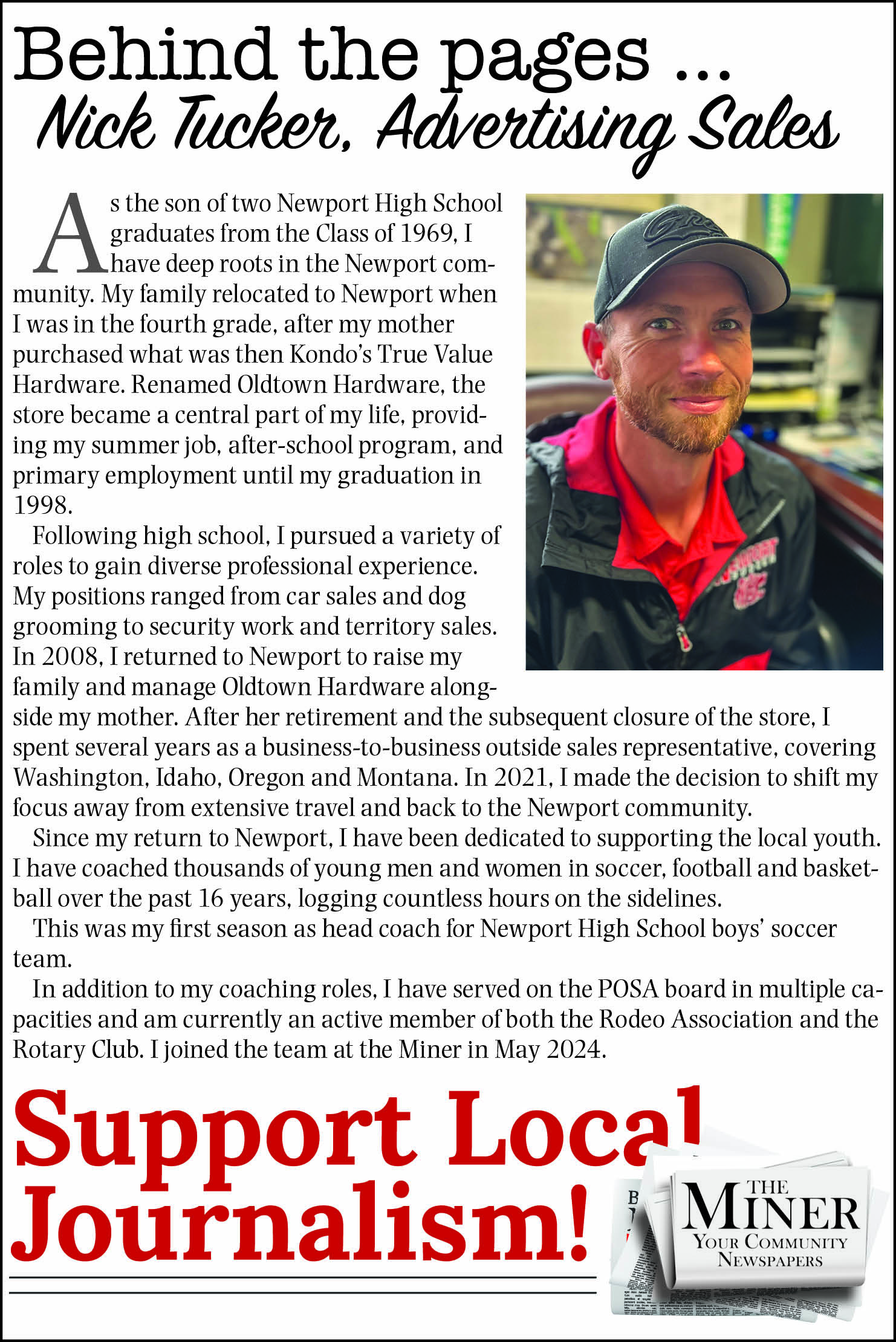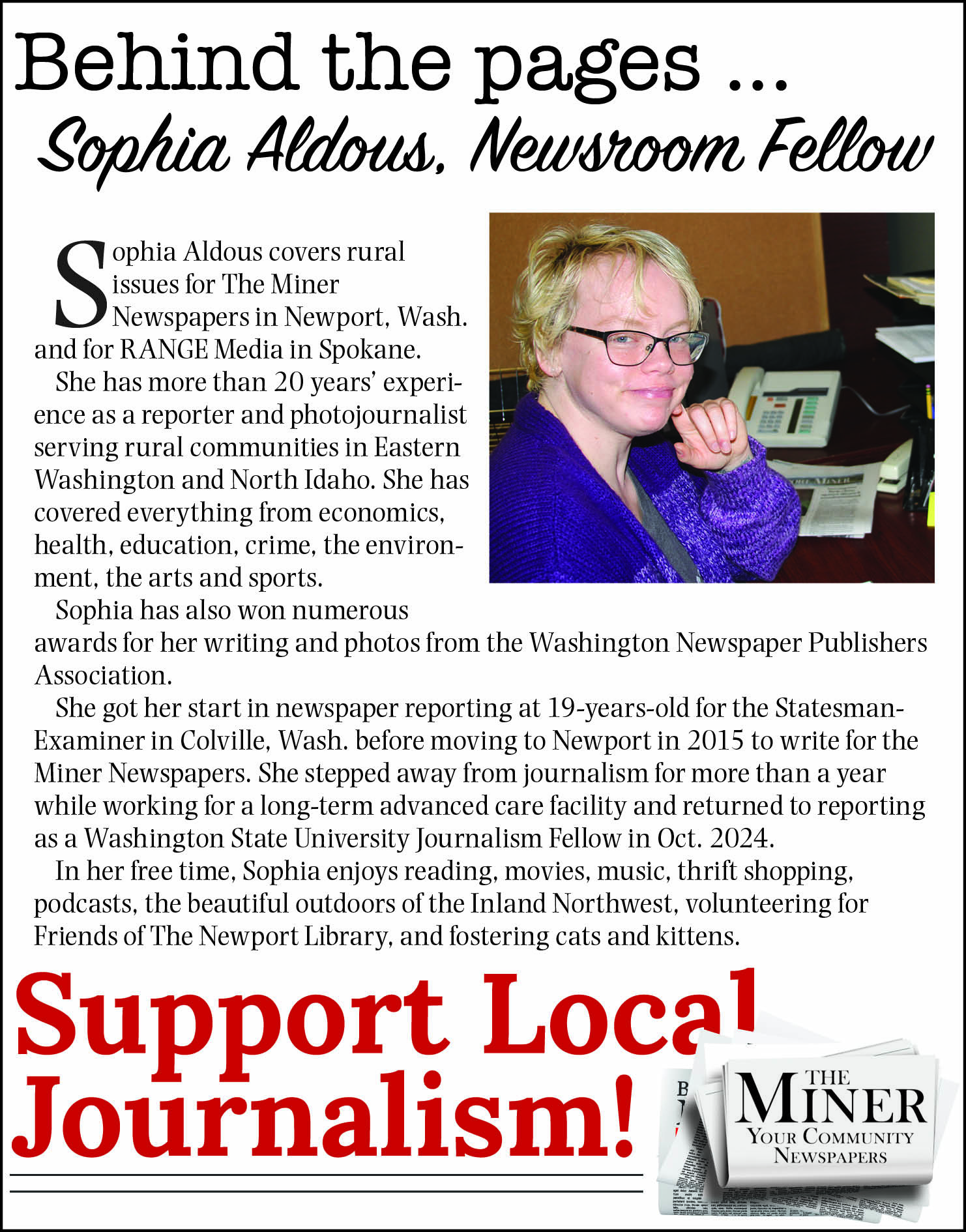How low-income families can save and still eat healthy
NEWPORT – Stephani Smith is in the farm to food pantry business providing fresh food to low-income families who utilize food banks in Pend Oreille, Stevens and Ferry counties.
Smith, who heads the Colvillebased N.E.W. Hunger Coalition, said there is food insecurity, especially in rural counties.
Food insecurity rates are highest for households with incomes below the poverty line and single-mother households, according to the U.S. Department of Agriculture. In 2022, 36.7% of households with incomes below the federal poverty line were food insecure.
Food insecurity is the limited or uncertain availability of nutritionally adequate and safe foods, as defined by the USDA.
“We aim at improving nutrition in food pantries,” Smith said.
Smith said food insecurity is a downward spiral of not being able to afford quality food and not being able to get to the food.
“In rural areas, the price of food and fuel is high,” she said.
The N.E.W. Hunger Coalition serves 17 food pantries from 18 farm contracts. In 2023, 3,716 pounds of produce was delivered to the Ione food pantry with another 3,762 pounds to the Cusick food pantry.
Food insecurity was also greater among residents who rent or have other living arrangements as compared to residents who own homes. Of all households experiencing food insecurity, 77% reported they were either “not getting by” or “just barely getting by” and over half of households with food insecurity said price increases were “very stressful,” according to The University of Washington’s School of Public Health.
Smith said the problem with most food pantries is the quality of food to be found “Much food at food pantries is packaged and shelf stable. We offer locally grown food,” she said.
N.E.W. Hunger Coalition did a recent study and found that many health visits stem from under nutrition.
“In America, one third of food pantry clients have a family member with diabetes. Fifty eight percent have heart disease,” Smith said.
N.E.W. Hunger Coalition, in operation for over 10 years, buys produce from local gardeners and farmers and delivers them by truck to predesignated routes.
Faith Farm on Panhead Hill Road in Newport is the organization’s newest contracted farm. The farm’s owner Sandy Coelho will sell a row of carrots, which then will be succession planted with sugar snap peas or lettuce to N.E.W. Hunger Coalition for area pantries. NEWHC will purchase all that this row produces for area food pantries.
Rural Gardens is another program provided by N.E.W. Hunger Coalition to ensure the public gets food dense in nutrients.
A hands-on gardening class, Rural Gardens is free to food pantry clients.
“People can shop at free seed tables and each spring Master Gardeners volunteer to teach about gardening,” Smith said.
She said there is a movement to provide healthier food options.
“We want to improve overall nutrition,” she said.
Another business that delivers quality bulk and natural foods is Azure Standard. Based in Oregon, Azure Standard has 3,000 drop locations across the United States. The number of locations is growing.
One of the drop locations in north Pend Oreille County is at Ione Town Hall. The other drop locations are in Newport and Priest River.
Ione drop coordinator Kathy Bungard said she has been buying from them for years.
“There is little choice in the north county,” she said about shopping organically.
“I don’t think enough people are aware of the food process,” Bungard said. “If it’s organic it’s expensive and you need to buy bulk. That’s a myth.”
She said shoppers can buy single items. If you can find organic peanut butter, Bungard said a 16 oz jar from Azure costs $7.71, the same from Walmart is $16.49 and Amazon charges $12.
“If I buy a case of six jars, it costs $37.88. Financially it’s a huge savings,” she said.
Azure sells more than organic natural food having personal and household supplies and toiletries served in eco-friendly bags.
“It’s convenient. Every shopper is asked to go to the drop off location, a truck pulls up and we unload,” Bungard said.
The catch is that the whole order’s minimum to buy is $6,000 or Azure doesn’t make the monthly drop and orders placed are rolled over until the next month. Azure doesn’t charge until they are able to make a drop.
July 7 is the next drop at Ione Town Hall and Bungard said the orders for July are discouraging.
“We need more people,” she said. “I must get $6,000 in sales before they deliver their monthly drop. So far, I’m not meeting that.”
“June was a scheduled drop but it was called off because of a lack of sales. Use it or lose it,” Bungard said.
She is promoting Ione drops through her Facebook page Azure Standard Drop, Ione, WA to get more people to shop. The page has 118 followers, but to date Azure only has 15 placed orders and 25 open orders.
Bungard said eating healthy, nutritious food is a no-brainer.
“It’s more choice, a healthy choice, and you save money,” she said.
Otherwise, people will have to drive further adding to fuel costs to receive more healthy choices.
“People drive to Costco in Spokane to shop for food,” Bungard said. “Filling up a monthly cart (from Azure) takes less effort than going shopping twice a month.”
.png)














